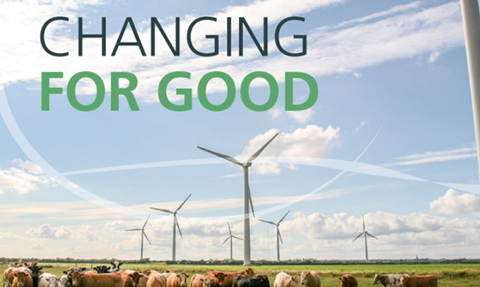The Provision Trade Federation (PTF) has launched Changing for Good, a new manifesto that outlines how the industry can achieve a 'more resilient and sustainable' supply chain.

In its last manifesto, Changing for the Better published in 2020, the organisation set out its view of what government and parliament’s post-Brexit priorities should be, including its vision for “a true national food strategy” looking at all aspects of consumption and production and making access to safe, sustainable, nutritious and affordable food a key policy objective.
The new publication, Changing for Good, is a continuation of this vision, which PTF says responds directly to the current conversations surrounding the climate change crisis. It aims to 'underline the definitive nature of the choices' the UK food industry faces and the benefits of putting sustainability at the heart of food production.
Among its recommendations, PTF stated that it is 'essential' that the UK government uses methodologies of estimating carbon emissions that take account of the specific features of the UK’s domestic food and farming systems. This new methodology, PTF stated, should be used in the place of default averages derived from global comparisons.
The manifesto also discusses the importance of meat to a healthy balanced diet. Drawing on Henry Dimbleby’s National Food Strategy, FTF maintains that sticking to recommended consumption levels has major environmental and health benefits.
'Eating less meat and dairy means eating more plant-based foods, which will have their own environmental impacts.' The manifesto concluded: 'There is no such thing as a carbon-free diet.'
Sustainable growth
As well as outlining the challenge facing the food industry ahead of the COP26 Climate Summit, the manifesto lays out the seven key aims that members are committing to:
- Helping to promote healthier and more sustainable consumption patterns and diets
- Tackling food waste (with the aim of halving it by 2030)
- Achieving a climate neutral food chain by 2050 at the latest
- An optimised circular and resource-efficient supply chain
- Sustainable growth, employment and working conditions for all
- Partnership working to drive value creation across the supply chain
- Responsible and sustainable sourcing of all inputs
The report emphasised the need to decarbonise energy sources across the entire food chain - including for activities like transport, distribution, packaging and refrigeration. By doing so, PTF claimed that it would 'contribute major savings' on the UK’s journey to net zero.
"Substantial room for improvement"
"Although the government seems to be backing away from mandating what should people should eat, there is no escaping that the food chain as a whole is one of the is one of the largest contributors to our carbon footprint and to range of other environmental impacts, both here and in many of the countries that form part of wider international supply chains," said Andrew Kuyk CBE, director general of PTF.
"The UK has some of the best and most resource efficient production systems in the world – and we need to highlight this. But there is still substantial room for improvement, through initiatives such as regenerative farming and avoiding the outsourcing of the impacts of what we consume to countries where standards and environmental safeguards are lower.
"Our manifesto seeks to unpick some of these complexities in arguing for balanced solutions which will enhance our – and more global – food security and resilience in the face of the undoubted challenges we face."
Rob Smith, PTF chairman, said: "I am proud of the work that has been done and what this manifesto represents. PTF looks forward to engaging with industry colleagues, with government and with our suppliers and customers to help bring about both the balanced solutions and transformational changes we are going to need to continue to supply the best possible range of the safest, most nutritious, affordable and sustainable products, as well as increasing resilience and food security for all."
This story was originally published on a previous version of the Meat Management website and so there may be some missing images and formatting issues.












